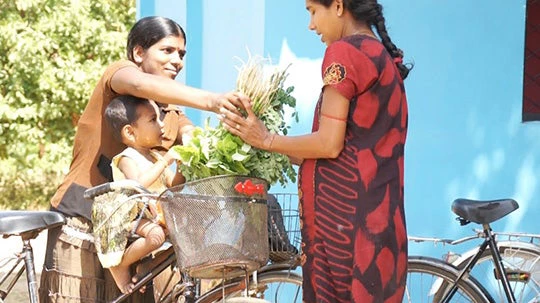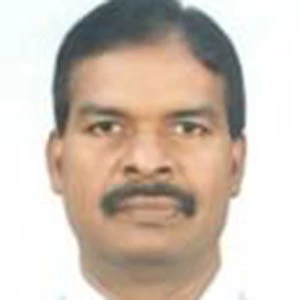A few years ago, I met a woman in Ampara, who receives benefits from the Re-awakening Project that I manage which provides financial support to those rebuilding their lives in the north and east. Through tireless efforts and support by the project, she’s able to make a steady income from selling produce from her garden and milk from her own cows. I was stunned.
However, she does not provide her children with the nutritious milk and vegetables she grows, purchasing powered milk instead. To empower residents with more knowledge, public health staff started with education, encouraging parents to give their children more milk and teaching children the importance of eating more fruits and vegetables and even gardening skills. To allow for more milk to be collected and last longer for the children, new cows brought in through the project produce 14 liters of milk a day compared to 4 liters before. In addition, we supported a milk cooling facility with the United Nations Development Program (UNDP).
 This is just the beginning. Knowledge of nutrition should go beyond that of doctors, nutritionists, and healthcare workers to everyone in society.
This is just the beginning. Knowledge of nutrition should go beyond that of doctors, nutritionists, and healthcare workers to everyone in society.
While making significant progress on poverty reduction and health goals, Sri Lanka is undergoing demographic, epidemiological and social transition and is facing the double burden of under nutrition and over nutrition with rapidly emerging non-communicable diseases. In the latest available data, 21 percent of under-five are underweight, 25 percent of adults are overweight and 9 percent are obese.
In order to bridge this gap in knowledge and information to improve the problems of malnutrition, in both too little and too much nourishment, we’re starting a new program, Integrating Nutrition Promotion and Rural Development (INPARD), funded through the South Asia Food and Nutrition Security Initiative (SAFANSI). How do we best incorporate improving nutrition through all areas?
As a part of the project, we are currently conducting an assessment on nutrition knowledge and practices in areas that have benefitted from the Re-Awakening Project in Monergala and Ampara Districts. The goals of the study, which is supported by different government Ministries are to identify efficient mechanisms to promote wellbeing towards a healthy and productive population in Sri Lanka, and encourage grass-root level rural development staff and health staff to work in collaboration to achieve common goal of reducing poverty and malnutrition along with the Millenium Development Goals.

We hope to evaluate methods and tools to measure the impact of a rural development projects on nutrition. The report will also hopefully teach us which nutrition related indicators were most feasible to use in rural development programs and we will be able to have an informed dialogue with colleagues from different development areas to provide recommendations for future projects.
We welcome our readers to join us in this effort by sharing your experiences on nutrition, it’s promotion, and how to integrate with development projects at the grassroots level. We also welcome you to participate in upcoming engagements related to this study. This only the beginning, stay tuned!



Join the Conversation